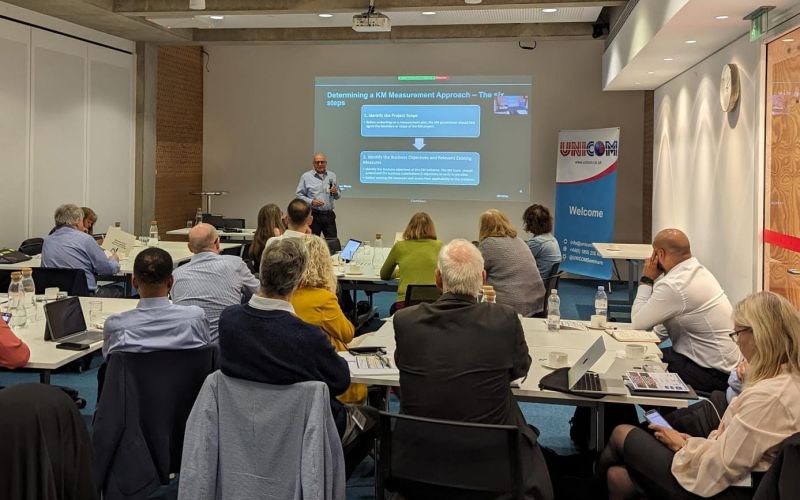Measuring Success in Knowledge Management: Insights from the KM Conference

As the Knowledge Lead in critical Knowledge Management Services, I had the privilege of presenting at the recent Knowledge Management (KM) Conference in London. The topic of my presentation was “Measurements and Metrics for KM,” a subject that continues to gain traction as organizations strive to quantify the impact of their KM initiatives.
Why Measurements and Metrics Matter
In Knowledge Management, the ability to measure and analyze the effectiveness of KM strategies is critical. Metrics provide tangible evidence of progress and areas needing improvement, helping organizations justify investments and make informed decisions.
Key Takeaways from the Conference
Defining Clear Objectives: Before measuring, it is essential to establish clear KM objectives aligned with the organization’s strategic goals. This ensures that the metrics chosen are relevant and impactful.
Quantitative vs. Qualitative Metrics: Both types of metrics are vital. Quantitative metrics might include the number of documents shared, user engagement rates, or reduction in redundant processes. Qualitative metrics, on the other hand, provide insights into user satisfaction and the cultural impact of KM practices.
Continuous Improvement: Measurement should be an ongoing process. Regularly reviewing and adjusting metrics ensures they remain aligned with changing organizational needs and KM maturity levels.
Technology and Tools: Leveraging advanced analytics tools can enhance the accuracy and depth of KM metrics. Tools that integrate seamlessly with existing KM platforms can automate data collection and analysis, providing real-time insights.
Case Studies and Real-world Examples: Sharing real-world examples and case studies, as done at the conference, highlights the practical application of KM metrics and their benefits. These stories serve as powerful illustrations of how theoretical concepts translate into practical outcomes.
Moving Forward
The KM Conference in London underscored the importance of robust measurement frameworks in knowledge management. As we continue to develop and refine our KM strategies at Nuclear Waste Services, the insights gained from this conference will be invaluable in guiding our approach.
For those interested in diving deeper into this topic, I encourage you to explore the various sessions and discussions from the conference. They provide a wealth of knowledge and practical advice that can help elevate your KM practices.
